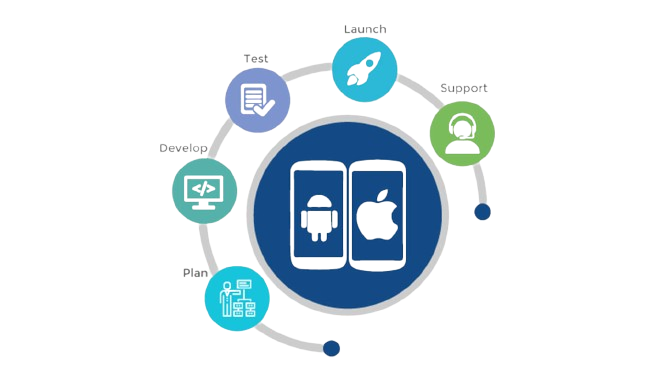Essential Small Business Checklist for Digital Performance

Small businesses must learn to leverage technology to thrive and maintain competitiveness in the rapidly evolving digital market. A small business’s web presence, marketing plans, and internal operational effectiveness are all significant components of its overall digital performance. To help small business owners navigate the digital landscape, we’ve compiled an essential checklist for digital performance.
15 Key Areas Small Businesses Can Focus on for Digital Performance
It can seem daunting to develop areas in your business that need to
focus on enhancing your digital performance; hence, we made this checklist to get all small businesses to follow. Let us look into the 15 key areas small businesses can focus on for the business’s digital performance.
1. Search Engine Optimization (SEO)
To be effective, a well-designed website must be easy to find. Increasing a small business’s online presence requires applying good SEO strategies. This includes building solid backlinks, optimizing content with pertinent keywords, and ensuring websites load quickly. Using descriptive meta tags and updating material frequently are two more methods to raise search engine ranks. Gaining organic traffic and increasing the likelihood that visitors will become customers require a solid SEO foundation. Click here for an example of a website appropriately optimized for the search engine.
2. Social Media Presence
Social media has become an integral part of digital marketing. Small businesses must build and maintain a solid social media presence to connect with their target audience. Choose platforms that align with your business goals and target demographics. Consistent and engaging content, along with active participation in conversations, helps build brand awareness and customer loyalty. Social media platforms also serve as valuable channels for customer feedback and interaction.

3. Responsive Website Design
In the digital age, a business’s website is the first thing a potential client sees; hence, a responsive website design is essential for a smooth user experience across devices. Mobile responsiveness is vital, with more people accessing websites via smartphones and tablets. Small businesses must ensure their websites are optimized for different screen sizes, as Google prefers mobile-friendly websites in its search rankings.
4. E-commerce Integration
It is imperative for businesses engaged in retail or product sales to integrate e-commerce capability. Offering clients the option to make purchases online improves convenience and broadens the business’s reach, whether through a dedicated online store or systems like Shopify and WooCommerce. An easy-to-use and safe checkout procedure and straightforward shipping and return guidelines enhance the online shopping experience.
5. Data Security Measures
Robust data security measures are essential as businesses depend increasingly on digital platforms. Cyber attacks can still affect small firms, and a security breach can have dire repercussions. Encryption methods, the implementation of secure payment channels, and routine software and plugin updates are essential procedures. Moreover, training staff members on cybersecurity best practices fosters a watchful and proactive team.
6. Email Marketing Strategy
Email marketing is still one of the best methods for engaging customers. Create a thorough email marketing plan incorporating automation, targeted campaigns, and personalized content. Businesses can increase their chance of conversion by customizing communications for targeted consumers by creating and segmenting an email list. Frequent updates, promotional emails, and newsletters keep clients informed and involved, building a solid rapport between the company and its clientele.

7. Content Marketing Strategy
In the digital sphere, content is king, and a carefully thought-out content marketing strategy may significantly impact the success of a small business. Produce top-notch, pertinent content that meets your target audience’s needs and interests. Infographics, movies, blog entries, and more can be included in this. Both consistency and tailoring information to the various phases of the client journey are essential. In addition to drawing in and keeping clients, a solid content marketing plan establishes the company as an authority in its field.
8. Analytics and Performance Monitoring
Continuous improvement requires an understanding of how users engage with your digital platforms. Use analytics tools to track user behavior, website traffic, and marketing campaign efficacy. For instance, Google Analytics offers insightful data on metrics like page views, bounce, and conversion rates. Businesses can improve their digital performance, make well-informed decisions, and hone their strategy by routinely evaluating this data.
9. Customer Relationship Management (CRM) System
A CRM system is invaluable for small businesses in efficiently managing and cultivating client connections. It tracks interactions, centralizes consumer data, and offers insights to guide sales and marketing tactics. Purchasing a CRM system customized for the company’s requirements increases productivity and enables a more individualized approach to client interaction. Increased client pleasure and loyalty follow from this.
10. Regular Website Audits and Updates
The digital world is dynamic and constantly changing regarding user preferences, technologies, and trends. Frequent website assessments guarantee that your online presence remains relevant and successful. This entails evaluating the user experience overall, updating out-of-date material, and inspecting for broken links. Making the required modifications on-time guarantees that your website will remain valuable for attracting visitors.

11. Employee Training in Digital Tools
A small business’s digital transformation involves streamlining internal procedures and implementing external-facing initiatives. Ensure staff members are knowledgeable about the digital tools and technology utilized by the company. This covers instruction in industry-specific software collaborative and project management tools. Having employees proficient in digital technology leads to higher output and more seamless daily operations.
12. Online Reputation Management
Monitor reviews on sites like Google, Yelp, etc., to actively manage your online reputation. Whether a customer’s feedback is positive or destructive, you should act quickly to resolve any issues raised. A good internet reputation increases credibility and trust, which affects potential buyers’ choices.
13. Adherence to Legal and Regulatory Requirements
Digital performance involves more than just user experience optimization; it also entails following legal and regulatory obligations. Laws governing data protection, internet privacy, and industry-specific compliance requirements are all vital information for small businesses. The company may have legal repercussions and reputational harm if these regulations are broken. Keep up with any modifications to the applicable laws and make sure your digital operations comply with the law.
14. Backup and Recovery Plans
Data loss can be catastrophic for a small business. One essential component of digital performance is putting strong backup and recovery procedures into place. Make regular off-site and on-site backups of critical data to guard against unanticipated events like cyberattacks and hardware breakdowns. When a clear recovery plan is in place, minimal downtime is guaranteed during a data-related incident.
15. Mobile App Development (if applicable)
Depending on the nature of the business, mobile app development can be a strategic move. Apps offer direct communication between companies and their customers, enabling customized experiences and focused marketing. An intuitive, well-designed app can provide a competitive advantage and increase brand loyalty. Before spending money on development, it’s crucial to determine whether an app fits with the company plan and the preferences of the target user base.

Conclusion
The digital performance of a small business encompasses a wide range of factors, from the outward-facing website design to the intricacies of internal operations. Small companies can create a strong foundation for success in the digital landscape by focusing on the essential elements outlined in this checklist.




